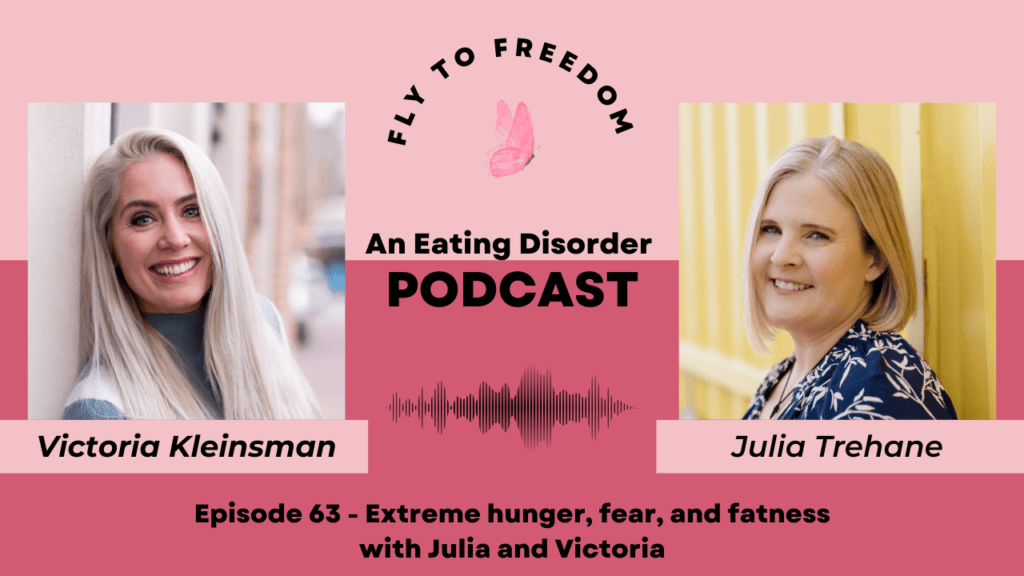As an eating disorder recovery coach, one of the most common concerns I hear from clients is the fear of weight gain and extreme hunger during renourishment. The idea of losing control around food and watching their body change shape can feel utterly terrifying. However, I assure you that these experiences are normal, necessary, and temporary parts of the recovery process.
The Body’s Response to Semi-Starvation: A Survival Mechanism
From a biological standpoint, eating disorders wreak havoc on the body’s internal systems and metabolic processes. When the body is subjected to long-term restriction, as is common with eating disorders like anorexia nervosa, it enters a state akin to “semi-starvation.” Research conducted by Keys et al. (1950), known as the Minnesota Starvation Experiment, provides valuable insights into this process. The study showed that during periods of prolonged calorie restriction, the body initiates various adaptive mechanisms to preserve energy, such as drastically slowing the metabolic rate and reducing non-essential functions like reproduction and growth .
This is a self-protective mechanism that our bodies developed eons ago to increase chances of survival during times of famine. In these states, the body will hold onto fat stores more vigorously, slow down digestion, and reduce energy expenditure to maintain life as efficiently as possible.
However, in modern times, with an abundance of food, this adapted starvation response does more harm than good when taken to the extreme of an eating disorder. Research highlights the myriad consequences of long-term malnutrition: reductions in bone density, organ damage, hormonal imbalances, and compromised immune function . Without adequate fuel, the brain itself is affected, which exacerbates disordered thinking and perpetuates the cycle of restriction.
Extreme Hunger During Re-nourishment: Why It Happens
When re-nourishment finally begins, the body has been in calorie debt for so long that it overcompensates by driving intense hunger cravings and cues to keep eating well past the point of fullness. This is known as reactive hunger or extreme hunger, and it is a biological response designed to replenish the energy and nutrients that have been severely depleted.
Studies have shown that individuals recovering from restrictive eating disorders often experience hyperphagia (increased food consumption), which is the body’s natural way of making up for years of deprivation . This phenomenon can trigger anxiety about losing control around food, but it’s important to understand that this is not binge eating disorder. Rather, it is the body’s compensatory mechanism to ensure survival.
For the vast majority of individuals in recovery, this extreme hunger is temporary and dissipates as the body begins to trust that it is receiving adequate and consistent nourishment . Honouring these hunger signals is crucial for restoring metabolic balance and helping the body regain normal functioning.
Fear of Weight Gain: Shifting the Focus from Appearance to Health
The fear of weight gain stems from societal pressures and the ego’s desire to control appearance and equate self-worth with body size. For many individuals, their eating disorder has been a way to cope with difficult emotions, and the idea of weight gain may feel like losing a coping mechanism.
Yet from my own journey, I can share that once I finally surrendered to the recovery process, the mental freedom and self-acceptance I gained became far more valuable than clinging to any specific physical aesthetic. The concept of “set point theory,” which is supported by research, suggests that the body will naturally gravitate toward a weight range that is healthiest for it, provided there is no external interference like calorie restriction or excessive exercise .
It’s also important to note that weight restoration is not just about appearance—every pound gained during recovery is used by the body to rebuild muscle, replenish fat stores, restore organ function, and repair metabolic damage . This rebuilding phase often requires patience and trust in the process, as your clothing may feel uncomfortable for a time, but the body is working to reclaim its health and strength.
The Psychological and Biological Interconnection
Understanding that your mind and body are intricately interwoven is key to recovery. Emerging research in the field of psychoneuroimmunology shows that the mind-body connection is much stronger than we once thought. This means that as you take action to nourish yourself and counter disordered thoughts, your body responds by gradually reducing starvation-related hunger signals .
When the brain is in a state of malnutrition, anxiety, fear, and obsessive thoughts about food are heightened. As nourishment continues, these symptoms will typically begin to ease. Your body will no longer signal extreme hunger cues once it recognises that you’ve made a real psychological and physical shift toward consistent self-care and nourishment.
Action Steps for Navigating the Fear
Recovery is an extraordinarily difficult journey filled with ups and downs. I understand that hearing reassurances doesn’t make the feelings of fear and sadness simply disappear. However, by taking consistent action despite the anxiety and honouring your body’s needs, you are giving it the message that you can be trusted as a consistent source of nourishment.
In return, your body’s primal hunger cues will eventually ease up when it no longer perceives a threat of famine. This biological feedback loop is a testament to the wisdom of your body, and while it may take time, full recovery is possible. Here are five action steps I recommend to guide your journey:
- Set Non-Body-Focused Goals
Write a list of personal goals and values that are not related to your body or appearance. This can help shift your focus from external validation to internal fulfilment. Studies suggest that reconnecting with your intrinsic values can improve overall well-being and reduce body dissatisfaction .
- Curate Your Social Media Feed
Follow diverse body-positive accounts that challenge narrow beauty standards. Research has shown that exposure to body-positive content can improve body image and reduce internalization of unrealistic beauty ideals .
- Immerse Yourself in Recovery Messaging
Download podcasts and follow recovery-focused resources. Cognitive-behavioural theories support the idea that repeated exposure to positive recovery messages can reshape thought patterns and reinforce motivation. My podcast, Fly to Freedom, coupled with my daily emailed mantras are a great example. You can sign up to The Daily Flight email at the bottom of the page and you can listen to the best podcast episode to accompany this post by clicking this image:
This podcast episode, with my dearest friend Victoria, which is also one of my most listened to editions, is a great companion listen to this blog. Click on it to listen.
- Seek Professional Support
Enrol a recovery coach, therapist or support group to guide you. I provide life changing 1:1 coaching which supports you through the process. Studies consistently show that professional help significantly improves outcomes in eating disorder recovery . You don’t have to walk this path alone.
- Take a Concrete Action Today
Plan one action that challenges your eating disorder today. Whether it’s purchasing a fear food or allowing yourself to eat past fullness, each step strengthens your resolve to recover. Evidence suggests that small, incremental challenges help build resilience in recovery .
To sum up…
The road ahead won’t be easy, but making peace with food and your body is one of the greatest gifts you can give to your authentic self. Recovery is a radical act of self-love, and by prioritising this journey, you are choosing freedom over fear. Trust the process, honour your body’s wisdom, and know that your body will find its natural equilibrium when you treat it with compassion and care.
If you’d like me to help you through your recovery, with proper, effective, science backed techniques and everything you need to create a better life, free from your eating disorder, reach out to me and take that 1st step. Oh, and this part is free of charge by the way!


